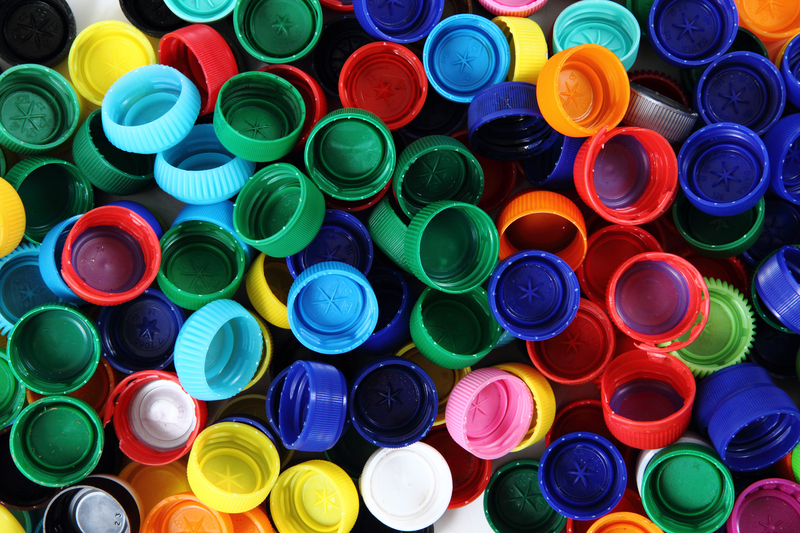Why Recycling Pots and Pans Matters for the Environment
When we think about household recycling, the usual suspects--plastic bottles, cardboard, or glass jars--often come to mind. However, there's a household essential many overlook: pots and pans. Whether made of stainless steel, aluminum, copper, or cast iron, these items play a key role in every kitchen. But what happens after they outlive their usefulness? Why does recycling your old cookware matter for the environment? This comprehensive guide delves into the environmental impact and benefits of responsibly recycling pots and pans, ensuring you understand why this sustainable practice is crucial.

The Environmental Impact of Discarded Cookware
What Happens to Old Pots and Pans?
Every year, countless pots and pans are tossed into landfills. These kitchen items are composed of metals and sometimes plastic, enamel, or even non-stick coatings. Due to their durability, pots and pans often take decades or even centuries to decompose. As they break down (if at all), they may leach toxic substances into the earth, contaminating soil and groundwater.
- Metals such as aluminum: While aluminum is highly recyclable, when sent to landfill, it takes up to 500 years to decompose, slowly releasing harmful residues.
- Non-stick coatings: Materials like Teflon can break down into dangerous chemicals such as perfluorooctanoic acid (PFOA), harming both nature and human health.
- Mixed materials: Many pots and pans include plastic handles, glass lids, or enamel coatings, which further complicate decomposition and pollution issues.
Landfills and Resource Wastage
Landfills are rapidly filling up with waste that could otherwise be reused or recycled. Throwing away old pans and pots contributes not only to landfill crowding but also to the unnecessary loss of valuable resources. The production of new cookware requires substantial raw materials and energy, leading to excessive carbon emissions and environmental degradation.
- Mining and resource extraction for metals damages ecosystems and uses massive amounts of water and energy.
- Carbon footprint: Manufacturing new cookware generates greenhouse gases, contributing to climate change.
- Continuous waste: Failing to recycle old kitchenware perpetuates the cycle of waste and resource depletion.
Benefits of Recycling Pots and Pans
1. Conserving Natural Resources
Recycling pots and pans recovers metals that can be transformed into new products. For example, recycled aluminum or stainless steel can be turned into anything from car parts to new kitchen tools. This process reduces the dependence on virgin materials, conserving finite natural resources.
- Aluminum recycling saves up to 95% of the energy required to refine new aluminum from ore.
- Steel recycling drastically cuts down mining requirements and energy consumption.
2. Reducing Energy Consumption and Greenhouse Gas Emissions
Manufacturing cookware from recycled materials takes far less energy than producing them from raw, extracted materials. As a result, recycling old pots and pans directly slashes greenhouse gas emissions and helps in the fight against global warming.
- Processing recycled metals uses less electricity and emits fewer pollutants.
- Reduces the overall carbon footprint of cookware production and disposal.
3. Preventing Soil and Water Pollution
When you recycle pans and pots, you prevent harmful chemicals--especially from non-stick and enamel surfaces--from leaching into the environment. This protection is vital for keeping soil and water sources clean and sustaining wildlife and human communities.
4. Promoting a Circular Economy
Recycling kitchenware supports the shift to a circular economy, where products are reused, refurbished, and recycled to minimize waste. This approach keeps valuable materials in use, reduces environmental impact, and encourages sustainable manufacturing and consumption.
How to Recycle Pots and Pans Properly
Preparation Steps
Before recycling your old cookware, it's essential to follow certain steps that ensure successful processing:
- Clean your pots and pans: Remove any food residue, oils, or dirt.
- Separate materials: Detach plastic or wooden handles, glass lids, or other non-metal parts whenever possible.
- Check for coatings: Some facilities may not accept items with non-stick surfaces like Teflon. Contact your local recycling center for guidance.
Where to Recycle Pots and Pans
Finding suitable recycling options may require a bit of research:
- Metal recycling centers: Most scrap metal recyclers accept pans and pots, especially those made from aluminum, stainless steel, or copper.
- Local council or curbside collection: Check if your municipality includes metalware in its recycling program.
- Donations and re-use centers: If your cookware is still usable, consider donating to thrift stores, shelters, or community kitchens.
- Retail take-back programs: Some kitchenware brands and retailers now offer recycling or trade-in programs for old pots and pans.
Challenges in Recycling Pots and Pans
Mixed Materials and Contaminants
One of the main challenges in recycling old pans and pots lies in their construction. Many include multiple materials-for example, a stainless steel pan with a plastic handle and a non-stick coating. These material combinations require disassembly and sometimes limit recyclability if your local facility cannot process certain components.
Coatings and Treatments
Non-stick coatings present further hurdles, as they may contain chemicals that interfere with recycling processes or pose health hazards. It's crucial to consult your local recycler about what types of cookware they accept and under what conditions.
Alternative Ways to Repurpose Old Cookware
Creative Upcycling Ideas
When traditional recycling is not an option, upcycling offers an eco-friendly alternative. Here's how you can give a second life to your old pans and pots:
- Planters: Use deep pots or saucepans as quirky garden planters or herb pots.
- Art projects: Painted or decorated cookware can become wall art or outdoor sculptures.
- Storage: Large pots make excellent containers for tools, utensils, or miscellaneous kitchen items.
- Bird baths or feeders: Re-imagine shallow pans as garden bird baths or feeders.
By upcycling, you avoid unnecessary waste and tap into your creative side, keeping valuable materials out of the landfill.
Addressing Common Questions About Recycling Pans and Pots
Can You Put Old Pans in the Recycling Bin?
Most regular curbside bins don't accept cookware due to mixed materials and size constraints. Check with your local recycling office or look for specialized metal collection points.
What If My Pots and Pans Have Non-Stick Coatings?
Non-stick (Teflon) coatings are tough to recycle safely. Some scrap yards accept them after the coating is removed or if it's worn away. When in doubt, contact your facility for guidance.
Are Aluminum Pans Recyclable?
Yes! Aluminum pots and pans are among the most environmentally friendly options to recycle, given aluminum's high recyclability and the energy savings involved.
How Do I Know Which Materials My Cookware Contains?
Check the bottom or packaging for symbols or labels indicating stainless steel, aluminum, copper, enamel, or cast iron. If uncertain, research the brand or contact the manufacturer.

What Can We Learn From Big-Scale Cookware Recycling?
Globally, businesses and cities are waking up to the importance of recycling kitchen cookware. From innovative recycling plants that process mixed metals to kitchenware brands offering trade-in programs, these initiatives showcase positive change.
- Europe leads in metal recycling efficiency, thanks to well-developed collection and processing infrastructure.
- Major cities are introducing dedicated metal recycling events and drop-off centers.
- Cookware manufacturers increasingly design products with recycling in mind, using single-material construction and eliminating unnecessary coatings or mixed materials.
By supporting these efforts and demanding more sustainable products, consumers help drive the global movement toward a greener kitchen and a healthier planet.
Conclusion: Every Pot and Pan Counts
Recycling pots and pans might seem like a small act, but its environmental ripple effects are undeniable. By recycling old cookware, you conserve resources, save energy, reduce pollution, and foster a sustainable future. Whether through dedicated recycling programs, energetic upcycling, or supporting brands focused on sustainability, every decision matters.
The next time you upgrade your kitchenware, don't just throw away your old pots and pans. Choose to recycle them, and motivate others to do the same. The earth--and future generations--will thank you for it.
Key Takeaways
- Discarded pots and pans contribute to landfill waste and environmental harm.
- Recycling cookware conserves raw materials, reduces energy use, and prevents pollution.
- Proper recycling involves cleaning and separating materials, and sometimes taking items to specialty centers.
- Upcycling unleashes creative ways to reuse old cookware at home or in the garden.
- Supporting circular economy initiatives reinforces global efforts for sustainability.
If you care about a greener, cleaner planet, remember: Recycling pots and pans truly matters for the environment.
